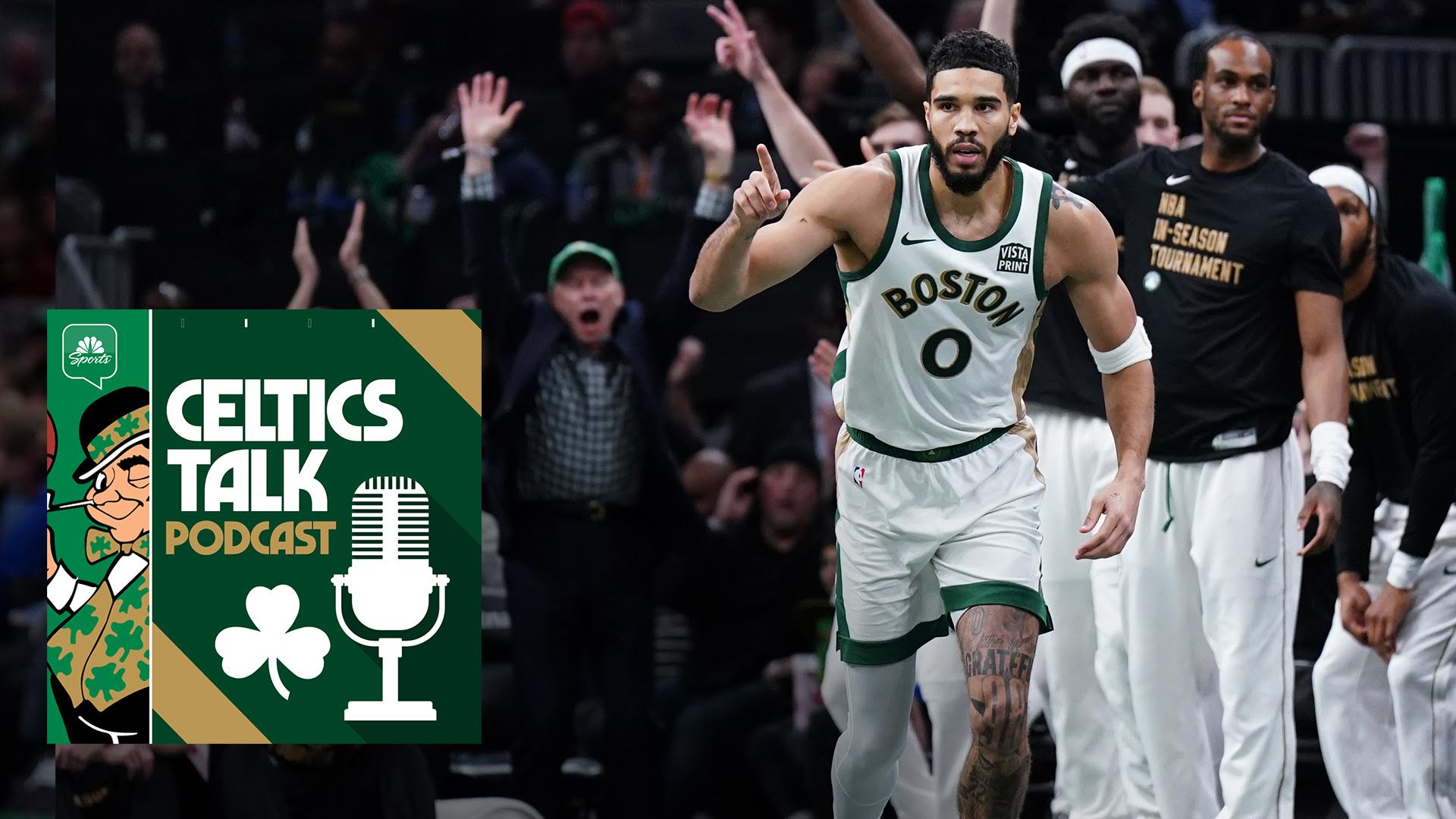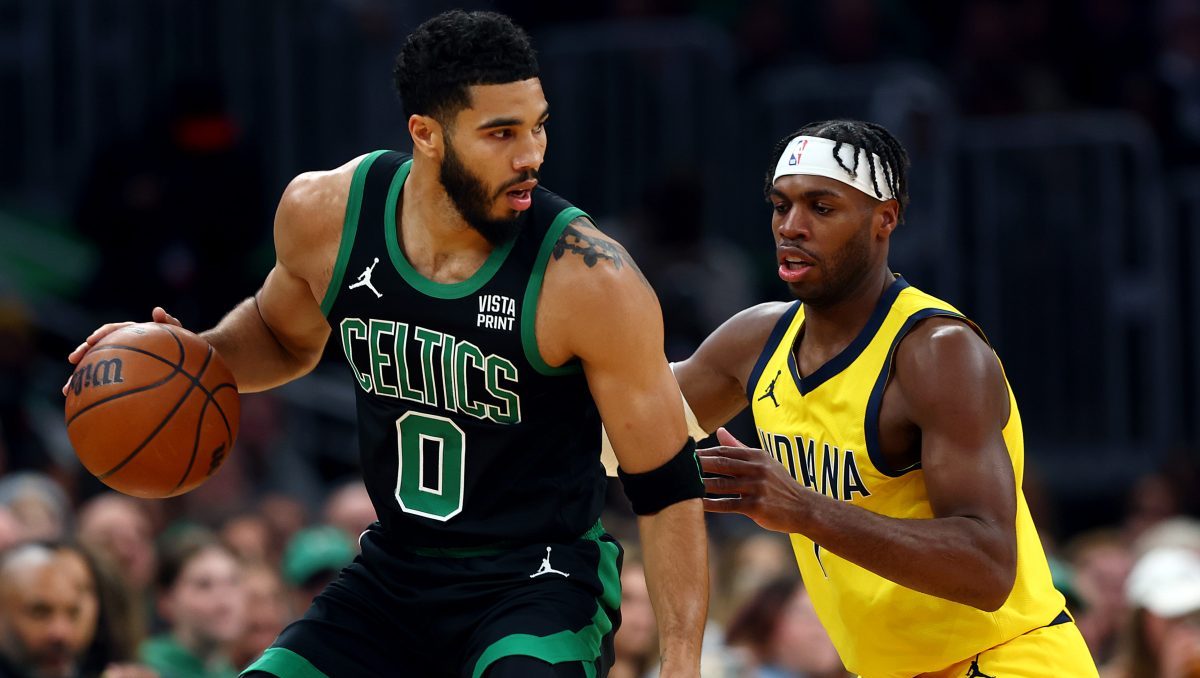BOSTON -- Quibble, if you must, with the NBA’s In-Season Tournament, with its colorful (and maybe slippery) courts and polarizing tiebreaker methods. But the inaugural event has forced the Boston Celtics to confront one of their most frustrating habits.
The Celtics, for all their successes over the past half decade, have routinely downshifted with big leads, which has often resulted in fumbling away wins, or at least putting added stress on the team at finish line of what becomes narrow victories.
That tendency was emphasized this month when Boston watched double-digit leads wither in six consecutive games before finally dropping a head-slapper to the lowly Charlotte Hornets. While not as maddening as instances on playoff stages that have contributed to a never-ending stream of Game 7s, Boston’s propensity to complicate its lives is well-documented.
Stay in the game with the latest updates on your beloved Boston sports teams! Sign up here for our All Access Daily newsletter.
Enter the IST and its point differential tiebreaker, which got thrust into a spotlight Tuesday night with a herd of teams trying to muscle their way into the knockout round. The Celtics entered the night needing to outscore the Bulls by at least 23 points to give themselves a chance at stealing Group C.

Then a funny thing happened: Boston built a double-digit lead and didn’t let up. The Celtics worked feverishly to push their advantage north of 30, going so far as to utilize a familiar Hack-a-Drummond strategy aimed at putting Chicago’s free-throw-allergic big man at the charity stripe despite a lopsided lead. The carnage culminated with Bulls coach Billy Donovan pouting about the process at midcourt as Celtics coach Joe Mazzulla apologetically tried to stress that Boston was simply playing to the criteria of the tournament.
Point differential has dominated NBA discourse for the better part of the past 48 hours. Mazzulla sought out Donovan and Drummond to apologize -- even if he shouldn’t have to -- while Celtics players like Jaylen Brown and Jrue Holiday expressed their discomfort in trying to run up the score since it runs counter to the spirit of the game.
Masked by all of the point differential chatter was the fact that the Celtics, despite a history suggesting otherwise, proved they do NOT always have to take their foot off the gas. They proved that, with the proper motivation and mindset, they're able to EXTEND big leads instead of kick them away.
When Mazzulla was peppered with questions Thursday about the fallout from the IST finale, he recounted a story of his father’s overseas basketball squad that embraced one wild pathway to securing the necessary point differential the team needed.
"I thought it was the right thing to do,” said Mazzulla. "It actually reminded me of a story, my dad played in Chile for five years and they played the same aggregate, best-of score differential. My dad’s team was up two … and they needed to win by six. But my dad’s team was winning so they purposely scored on their own basket so they could force it into overtime and try to win by six.
"So, to me, it’s like by any means necessary, within the rules.”
MORE CELTICS COVERAGE
But to Mazzulla, the bigger takeaway was trying to change his team’s mindset when it comes to maintaining the necessary energy level for 48 minutes. And he offered long, thoughtful answers when asked about energy dips and point differential.
“[An energy dip] happens every game. It happens to every team in every league,” said Mazzulla. "We talked about that today. Can we be the team that doesn’t fall into that? It’s going to happen from time to time, but can we recognize it and give ourselves tools? In the heat of those moments, can we go to things that bring back our focus?
“There are a ton of blown leads in the NBA, and a lot of it has to do with embracing that. It goes back to even the tournament, right? You talk to [Kristaps Porzingis]. KP has been playing with point differential his whole career. So he can’t fathom why you wouldn’t play up 30 points to get it there. Like, that’s his definition of respect for the game, whereas the American definition of respect for the game is we all stop playing when it’s a 20-point game and let someone else go play for us.
"So it’s just a different level of expectations. The in-season tournament has really help give the perspective of, should we not be trying as hard as we could when you’re up 32 points or up 25 or up 18? So it’s just that level of perspective. So if we can, at some point, be the team that’s the best at playing regardless of what the score is, it allows us to build a mindset and habits.”
Lingering on the topic, Mazzulla again emphasized a desire for his team to change their playing-from-ahead approach.
🔊 Celtics Talk: What we've learned about the Celtics through the first 1/4 of the season | Listen & Subscribe | Watch on YouTube
“The point differential has opened up the perspective of why teams blow leads, and why the difference in basketball here in America is different in Europe, because the expectation of point differential makes teams have to keep playing,” said Mazzulla. "Like, the things that you're seeing in the In-Season Tournament this year go on in Europe on a daily basis because of the structure that they play with. And so it's just, when you're talk to players like KP, who have played with Europeans, you talk to players here who have only played in America, it's a different perspective on respect for the game.
"European respect for the game is like, 'Do what we did against Chicago every single time' because there's always a point differential. Where, here, at some point, the other team concedes and you put in different lineups, and you're just kind of hoping the game's over. And so regardless of if it's 30 points and a point differential, or we’re up 18 with six minutes to go, can we play as hard as we can and not just hope for us — like be hopeful that we'll win this game or get through it?
"Can we strive in those situations?”
Mazzulla believes that everyone from players to coaches to fans will better understand the point differential aspect in future seasons with the IST. But he quite clearly believes it can be a launching pad for his team to eliminate one of its most egregious habits even sooner.



